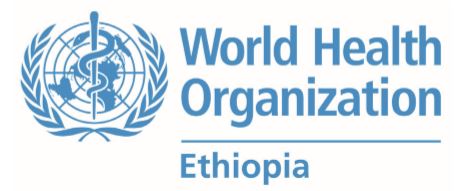The World Health Organization (WHO) is living up to its commitment to reach the last mile delivery as over 95,000 vulnerable people can now access emergency supplies for Cholera, Malaria and conflict related casualties’ management in Amhara region. The 17, 8797 metric tons of emergency drug kits have been on the road for over a week during which drivers never really had the certainty to reach their destination safely.
Mr Yewulsow Dellelle Desta is the Operation Support and Logistics Assistant for WHO in Bahir Amhara. He is responsible for the verification of the quantity and quality of the supplies delivered. “Not every truck makes it to its destination. Sometimes trucks are stopped for an undetermined period of time. It leaves WHO with limited options which are either flying the supplies at three times the cost or taking a time-consuming detour via Debbarma. All this has an impact on timely reaching our beneficiaries.” Mr Dellelle said.
Amhara has been facing multiple health and humanmade emergencies since mid-2023. This has made the delivery of procured supplies an ongoing challenging task to accomplish for the WHO team based in Bahir Dar. A delivery from Addis Ababa, Ethiopia’s capital to Bahir Dar, the heart of Amhara would take two days by road under normal circumstances.
Unfortunately, WHO is not the only organization delivering in such a challenging environment. As the Lead Agency of the Global Health Cluster, a coordination mechanism mobilizing partners and harmonizes efforts for an efficient use of available resources, WHO was able to rally partners and resources to deliver the last mile in a coordinated manner in various locations of the region.
Mr Foday Kamara, the sub national Health Cluster Coordinator for Amhara has been working with the Amhara Public Health Institute and the regional health bureau to map partners and resources. “Partners Working in harmony is essential for the benefit of the affected populations but it is not that obvious when the region is facing multiple emergencies forcing project to close and partners to leave.” Mr Kamara said. Currently 20 partners are operating in the Amhara region providing humanitarian support through service delivery, logistic support, and capacity building.
In addition to drought, Cholera, Malaria and a Measles outbreak, Amhara is also facing an armed conflict causing casualties who eventually turn to health facilities to seek health services. Availing supplies where they are the most needed regardless of how far or how hard it is to reach is what WHO has pledged to accomplish. Delivering the last mile is indeed a game changer for health facilities like the Metema Central Hospital which serves half a million habitants, a number that tends to quadruple when farmers cross the area during harvest time and the number of internally displaced people keeps increasing due to the ongoing conflict in the region.
Mr Ayenew Mandefero who is the CEO of Metema hospital says WHO kits help restore the balance in the facility’s storage and services. “In addition to the people living within the hospital’s catchment area, we also provide health services to IDPs who can barely afford the basics. Without the support from partners like WHO it is hard to avoid a stockout.” Mr Mandefero said.
Distributed by APO Group on behalf of World Health Organization (WHO) – Ethiopia.
